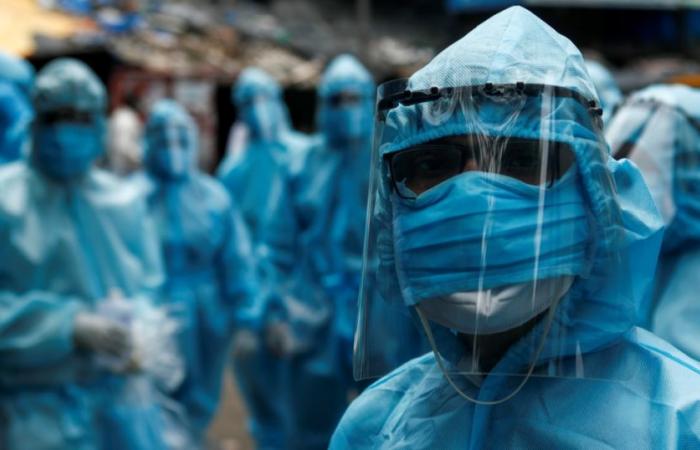A bird flu-related death in the United States and a wave of infections in China from a flu-like virus, hPVH, are reigniting fears of a pandemic. Five years after the first death from Covid-19, the WHO and experts warn that, despite progress, the world remains insufficiently prepared.
Five years after the first deaths from Covid-19, while the fear of a new global pandemic remains high, is the world better prepared? “The answer is yes and no,” recently said Tedros Adhanom Ghebreyesus, the head of the World Health Organization (WHO), which has been at the heart of the battle against Covid-19.
If the next pandemic occurred today, the world would still face some of the same weaknesses and vulnerabilities
“If the next pandemic occurred today, the world would still face some of the same weaknesses and vulnerabilities,” he said. “But the world has also learned many painful lessons from the pandemic and taken important steps to strengthen its defenses,” he said.
The question arises as a first human death due to avian flu has been reported in the United States and a wave of infections due to a flu-like virus, MPVh, is observed in China, sparking the concern about the emergence of a new pandemic (read framed). Because Covid-19 will not be the last pandemic, scientists are certain of it. The question is when the next one will arrive.
>> Read also: Five years ago to the day, China announced the first official death linked to Covid-19
Improvements, but…
According to Maria Van Kerkhove, the American epidemiologist who heads the Department of Epidemic and Pandemic Prevention and Preparedness at the WHO, “many things have improved thanks to the influenza pandemic (H1N1, editor’s note) of 2009, but also thanks to Covid.” “But I think the world is not ready for a new pandemic or mass epidemic,” she said.
In 2025, the world is not ready to combat a new pandemic threat, due to persistent inequalities in access to finance and tools to fight pandemics
The group of independent experts for pandemic preparedness and response, created by the WHO, says it bluntly: “In 2025, the world is not ready to fight a new pandemic threat”, due to the inequalities that persist in terms of access to financing and tools to fight pandemics such as vaccines.
Speed of vaccine production
Dutch virologist Marion Koopmans, however, explained to AFP that the success and speed of production of vaccines based on the messenger RNA (mRNA) technique could “change the game” during the next global health crisis.
But she worries that their use in the face of a future threat will encounter “major problems”, in particular because of the “staggering” level of misinformation, accompanied by distrust of vaccines. United States President-elect Donald Trump has just appointed Robert F. Kennedy Jr., a former vaccine skeptic lawyer known for spreading conspiracy theories, as Minister of Health.
>> Read about it: Donald Trump names vaccine skeptic Robert F. Kennedy Jr. as Minister of Health
And Tom Peacock, virologist at Imperial College London, considers that the possibility of an H5N1 avian flu pandemic must be taken “very seriously”. For the moment, the virus is not transmitted between humans, but it circulates massively in many animal species.
>> Review the 7:30 p.m. topic on the first human infected with avian flu in the United States (12/20/2024):
“I don’t think we are any more prepared than we were with Covid,” added Meg Schaeffer, epidemiologist at the American SAS institute. She estimates it would take another four to five years for public health authorities to detect and share information more quickly.
But she has “confidence” in the lessons learned by the population during Covid-19 to protect themselves, such as social distancing and wearing a mask.
Fabien Grenon with the agencies







